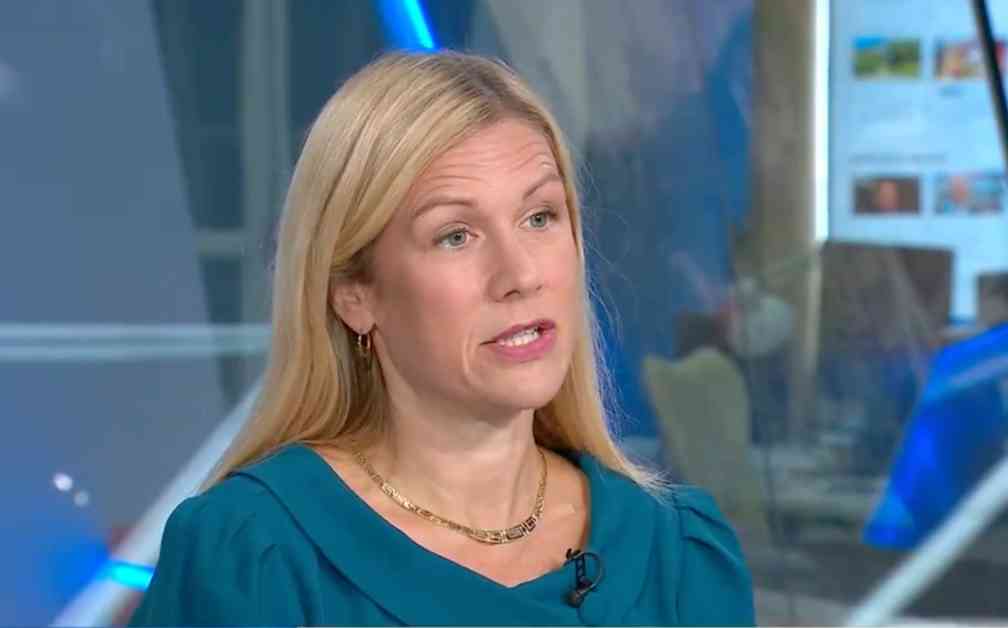Labour Stands Firm on Winter Fuel Cuts Amid Financial Strain
As the Labour Party faces mounting pressure over its decision to cut winter fuel payments for pensioners, party chair Ellie Reeves has defended the move, citing the need to address the country’s financial challenges. Despite facing criticism and calls for a reversal of the cuts, Reeves emphasized the importance of making tough decisions in the face of a £22 billion deficit left by the Tories.
Addressing the issue of winter fuel payments and the potential impact on vulnerable pensioners, Reeves acknowledged the emotional resonance of the decision, especially if it results in deaths due to cold homes. However, she stressed the necessity of prioritizing long-term solutions over short-term fixes, likening the situation to repairing a house’s foundation rather than simply covering up surface issues.
Labour’s Fiscal Strategy
Reeves pointed to the Conservative government’s mismanagement of the economy in the past, highlighting the need for responsible financial planning to avoid repeating past mistakes. She emphasized that the Labour Party’s approach is focused on addressing underlying structural issues rather than engaging in temporary measures that may not yield sustainable results.
The decision to cut winter fuel payments has been met with pushback from within the party, with calls for a reversal of the policy gaining traction. However, Reeves emphasized that the government must prioritize fiscal stability and accountability in order to address the broader economic challenges facing the country.
Party Unity and Leadership
Reeves’ staunch defense of the winter fuel cuts underscores the leadership’s commitment to fiscal responsibility and long-term planning. Despite facing internal dissent and external criticism, she remains loyal to Keir Starmer’s vision for the party and his efforts to steer Labour towards a more centrist position.
As a key figure in Starmer’s cabinet, Reeves has faced challenges from the party’s left-wing factions, particularly in the aftermath of Jeremy Corbyn’s leadership. Her experiences of being targeted for deselection and facing backlash from Momentum members highlight the ongoing tensions within the party as it seeks to redefine its identity and appeal to a broader base of voters.
Challenges and Priorities
The Labour Party’s focus on addressing the country’s economic challenges extends beyond the issue of winter fuel payments. Reeves emphasized the need for comprehensive reforms in areas such as prison overcrowding, rehabilitation, and public services. She highlighted the failures of the previous government in addressing these issues and stressed the importance of building a more sustainable and equitable system.
Despite facing criticism and scrutiny over issues such as political donations and party funding, Reeves remains steadfast in her commitment to transparency and accountability. She defended Keir Starmer’s acceptance of gifts and rejected comparisons to the controversies surrounding Boris Johnson’s government, emphasizing the need for integrity and ethical leadership in politics.
In the lead-up to the Labour Party conference in Liverpool, the focus remains on charting a course for the future and addressing the complex challenges facing the country. Reeves’ reflections on the party’s electoral victory in 2024 and the need for optimism amidst economic uncertainty underscore the party’s commitment to delivering meaningful change and rebuilding public trust.
As the Labour Party navigates internal divisions and external pressures, Reeves’ leadership and strategic vision will continue to play a pivotal role in shaping the party’s direction and priorities. By advocating for fiscal responsibility, social justice, and progressive reforms, she embodies the party’s commitment to creating a fairer and more inclusive society for all.












